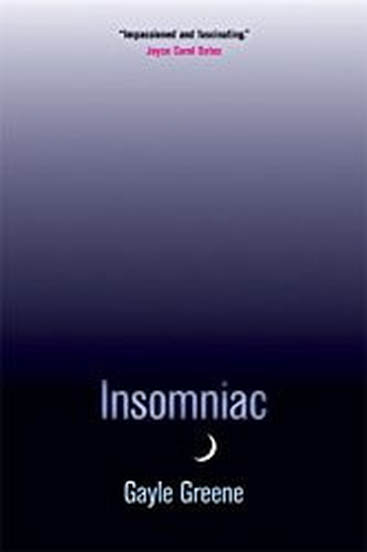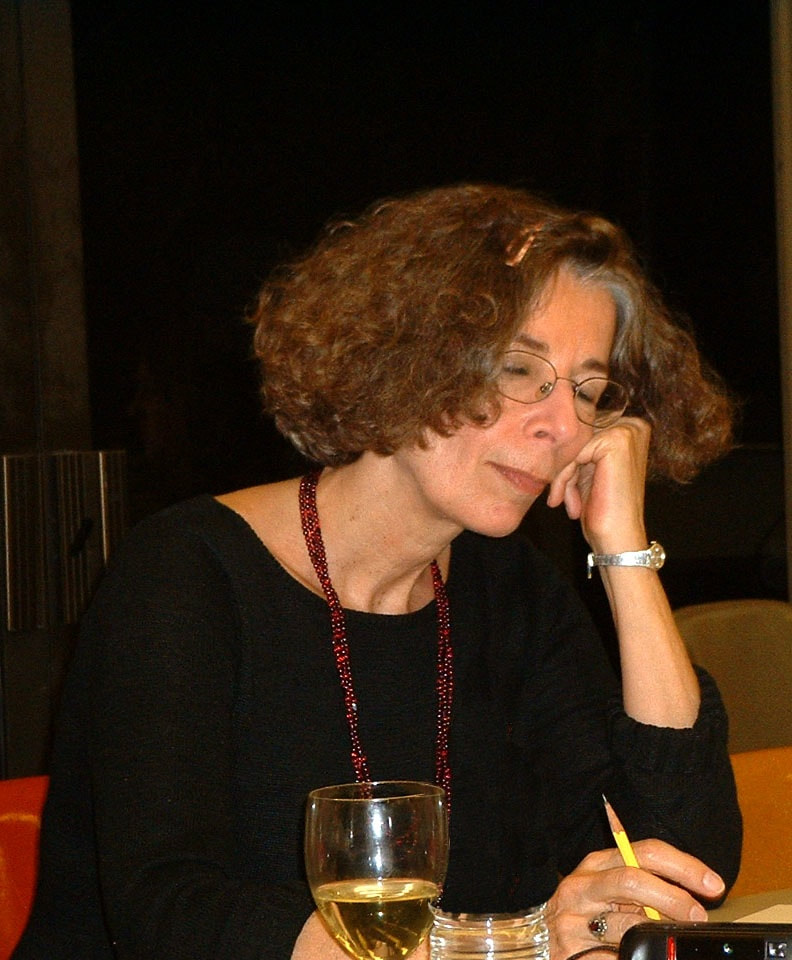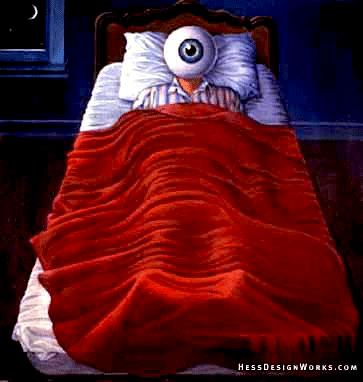|
"Insomniac is an impassioned work--an inspired amalgam of academic and first-hand research, memoir, analysis, and the kind of obsessive brooding we associate with the insomniac state. Much here is fascinating, and much is upsetting; here is a cri de coeur from a lifetime insomniac that is sure to appeal to the vast army of fellow insomniacs the world over." --Joyce Carol Oates "The good news is that Gayle Greene's book is all you ever need to read on the subject of sleeplessness; the bad news for fellow insomniacs is that reading it--even in bed--will fail to lull you to sleep." --Billy Collins, former Poet Laureate “Insomniac is far too interesting to lull you into dreamland.” --Francine Prose, O: The Oprah Magazine |
Starred review, Library Journal
"Although the topic of insomnia might seem to lend itself to a put-you-to-sleep treatment, this engrossing, easy-to-read study addresses the multifaceted subject with wit and wide-ranging scholarship. Greene (literature & women’s studies, Scripps Coll., Claremont, CA; The Woman Who Knew Too Much: Alice Stewart and the Secrets of Radiation) has lived with insomnia for as long as she can remember, and in this engaging treatise-which she describes as 'very personal…wrung out of my life’s blood'-she takes readers into the world of sleep research, sleep clinics, pharmaceuticals, sleeping potions, alternative medicine, and sleep physiology and psychology. Throughout, she demonstrates in-depth knowledge of the latest and most comprehensive research efforts in understanding this extremely painful,even life-threatening condition. Nontechnical in its approach, the book is completely accessible to the general reader and should prove enlightening to anyone with an interest in insomnia and sleep studies.Unfortunately, no solution it offers ultimately advances beyond the W.C.Fields Chapter 1 epigram: 'The cure for insomnia? Get plenty of sleep.' Highly recommended as the up-to-date summation of what is known about insomnia."
James Swanton, Harlem Hospital Lib., New York
"A harrowing memoir."
Wall Street Journal
“Provides . . . insights that many sleep researchers and doctors have lost track of. . . . Among the best books of its kind.”
Nature
“Greene imparts a feeling of solidarity to fellow sufferers.”
Library Journal
“No easy answers - but fascinating.”
People Magazine
“Disturbing, important book.”
Seattle Times
"This is a very well-researched, in-depth book on insomnia, written with much empathy and from the patient's point of view. I would recommend it to all who are plagued by this malady or who professionally try to treat it."
Peter Hauri, author of No More Sleepless Nights
Sometime in my late fifties, I found myself less and less able to tolerate sleep loss or the medications I relied on. “Don't worry, you need less sleep as you get older,” I was told, one of those cheerful bromides that turns out to be, like so much of what we hear about insomnia, so much BS.
So I set out to discover what was known about this disorder. I started going to sleep conferences. I’d never heard of a sleep conference before I went to Seattle in 2002 for the APSS (Associated Professional Sleep Societies), the first of seven of these conferences I attended. They’re a very big deal, 5,000-6,000 people, scientists doing animal research mingling with psychotherapists, social workers, nurses; sleep technicians, neuroscientists, geriatricians, epidemiologists, drug company researchers, sales reps, producers of sleep equipment, CPAP machines, etc. A buzz of excitement informs these meetings, the excitement of new discovery, of people hoping to get rich, for there are big bucks in sleep disorders. And yet, in spite of the excitement, insomnia is still explained as something we bring upon ourselves: we’re stressed out, we worry too much, we're anxious, we're depressed. When doctors don't understand a disorder, they tend to blame the sufferer.
I found that the state of the art was not too different from the days my father (a doctor) would tell me, go to bed earlier, drink a glass of warm milk. I was hearing the same-old advice I'd heard for decades: get up at the same time, keep a regular schedule, avoid caffeine, sleep in a dark quiet place.
Doctors don’t like conditions they can’t see, measure, or test. And insomnia can't be seen, x-rayed, biopsied; often it doesn’t even show up on an EEG. You only know a person has it by what that person says--which makes it astonishing that the voices of insomniacs are absent from the scientific literature. You can read through articles and books by the acre and never find an insomniac quoted. So I started collecting stories; I tracked down everyone I’ve ever heard of or known who has insomnia, friends, friends of friends, relatives of friends, acquaintances, colleagues, students, to find out what they knew. I placed ads; I spent late night hours surfing insomnia sites, blogs, newsgroups. And I found a chasm between the assurances of the professionals, their bromides about “safe and effective” treatments, and the howl of pain and rage from people whose lives are ruined by this disorder, who flounder from one unsatisfactory treatment to another.
Unlike the many books by “experts” who approach insomnia from the outside, Insomniac (University of California Press; Little Brown, U.K., 2008) gives the inside story, based on my lifelong experience and the accounts of the many insomniacs I interviewed. I take issue with received opinion that insomnia originates primarily in our dysfunctional beliefs and attitudes, arguing that there are underlying physiological causes that are not yet understood. The science has, in the years since the book was published, been moving my way.
Though it challenged mainstream thinking about insomnia, Insomniac earned praise from the New England Journal of Medicine, where reviewer Fred Turek “found the presentation of sleep science very impressive and up to date…at a level I would expect to find in a scientific review… As an in-depth overview of the patients, the physicians, and the science… Greene’s book is the best available on the subject.” Sept 2009, 359, 13, 1412-13. Insomniac was shortlisted for the Gregory Bateson Prize by the Society for Cultural Anthropology: “Shakespeare scholar turns ethnographer, sleep specialist, and science detective…[and] reveals just how little the contemporary medical community knows about the world of sleeplessness…” The book was Amazon’s pick of March, 2008, praised as “similar in depth and scope to Andrew Solomon's remarkable memoir of depression, The Noonday Demon.”
Here are some links to lectures and interviews:
Insomniac “trailer,” me reading the first few pages
Advice to insomniacs: (short version) (long version)
Here are a few radio interviews (a complete list is on my website, sleepstarved.org):
Talk of the Nation, NPR, Neal Conan, May 2009
The Leonard Lopate Show/WNYC Radio, NPR, April 2009
WEEKDAY/KUOW RADIO, Seattle NPR, March 2009
– with Dr. Vishesh Kapur, director of Sleep Disorders, Harborview Medical Center
THE MORNING SHOW, Michael Krassny, KQED, March 2009
At Issue, Wisconsin Public Radio, March 2009
Here are a few of my articles:
“Snooze Alarm: What the deaths of celebrities can teach us about the dangers of insomnia,” Opinion, Los Angeles Times, March 30, 2008.
“The Case for Sleep Medicine,” New York Times
“Why We Can’t Sleep, It’s Not Just in our Heads, But in our Hormones,” Ms Magazine, April/May, 2008
"Although the topic of insomnia might seem to lend itself to a put-you-to-sleep treatment, this engrossing, easy-to-read study addresses the multifaceted subject with wit and wide-ranging scholarship. Greene (literature & women’s studies, Scripps Coll., Claremont, CA; The Woman Who Knew Too Much: Alice Stewart and the Secrets of Radiation) has lived with insomnia for as long as she can remember, and in this engaging treatise-which she describes as 'very personal…wrung out of my life’s blood'-she takes readers into the world of sleep research, sleep clinics, pharmaceuticals, sleeping potions, alternative medicine, and sleep physiology and psychology. Throughout, she demonstrates in-depth knowledge of the latest and most comprehensive research efforts in understanding this extremely painful,even life-threatening condition. Nontechnical in its approach, the book is completely accessible to the general reader and should prove enlightening to anyone with an interest in insomnia and sleep studies.Unfortunately, no solution it offers ultimately advances beyond the W.C.Fields Chapter 1 epigram: 'The cure for insomnia? Get plenty of sleep.' Highly recommended as the up-to-date summation of what is known about insomnia."
James Swanton, Harlem Hospital Lib., New York
"A harrowing memoir."
Wall Street Journal
“Provides . . . insights that many sleep researchers and doctors have lost track of. . . . Among the best books of its kind.”
Nature
“Greene imparts a feeling of solidarity to fellow sufferers.”
Library Journal
“No easy answers - but fascinating.”
People Magazine
“Disturbing, important book.”
Seattle Times
"This is a very well-researched, in-depth book on insomnia, written with much empathy and from the patient's point of view. I would recommend it to all who are plagued by this malady or who professionally try to treat it."
Peter Hauri, author of No More Sleepless Nights
Sometime in my late fifties, I found myself less and less able to tolerate sleep loss or the medications I relied on. “Don't worry, you need less sleep as you get older,” I was told, one of those cheerful bromides that turns out to be, like so much of what we hear about insomnia, so much BS.
So I set out to discover what was known about this disorder. I started going to sleep conferences. I’d never heard of a sleep conference before I went to Seattle in 2002 for the APSS (Associated Professional Sleep Societies), the first of seven of these conferences I attended. They’re a very big deal, 5,000-6,000 people, scientists doing animal research mingling with psychotherapists, social workers, nurses; sleep technicians, neuroscientists, geriatricians, epidemiologists, drug company researchers, sales reps, producers of sleep equipment, CPAP machines, etc. A buzz of excitement informs these meetings, the excitement of new discovery, of people hoping to get rich, for there are big bucks in sleep disorders. And yet, in spite of the excitement, insomnia is still explained as something we bring upon ourselves: we’re stressed out, we worry too much, we're anxious, we're depressed. When doctors don't understand a disorder, they tend to blame the sufferer.
I found that the state of the art was not too different from the days my father (a doctor) would tell me, go to bed earlier, drink a glass of warm milk. I was hearing the same-old advice I'd heard for decades: get up at the same time, keep a regular schedule, avoid caffeine, sleep in a dark quiet place.
Doctors don’t like conditions they can’t see, measure, or test. And insomnia can't be seen, x-rayed, biopsied; often it doesn’t even show up on an EEG. You only know a person has it by what that person says--which makes it astonishing that the voices of insomniacs are absent from the scientific literature. You can read through articles and books by the acre and never find an insomniac quoted. So I started collecting stories; I tracked down everyone I’ve ever heard of or known who has insomnia, friends, friends of friends, relatives of friends, acquaintances, colleagues, students, to find out what they knew. I placed ads; I spent late night hours surfing insomnia sites, blogs, newsgroups. And I found a chasm between the assurances of the professionals, their bromides about “safe and effective” treatments, and the howl of pain and rage from people whose lives are ruined by this disorder, who flounder from one unsatisfactory treatment to another.
Unlike the many books by “experts” who approach insomnia from the outside, Insomniac (University of California Press; Little Brown, U.K., 2008) gives the inside story, based on my lifelong experience and the accounts of the many insomniacs I interviewed. I take issue with received opinion that insomnia originates primarily in our dysfunctional beliefs and attitudes, arguing that there are underlying physiological causes that are not yet understood. The science has, in the years since the book was published, been moving my way.
Though it challenged mainstream thinking about insomnia, Insomniac earned praise from the New England Journal of Medicine, where reviewer Fred Turek “found the presentation of sleep science very impressive and up to date…at a level I would expect to find in a scientific review… As an in-depth overview of the patients, the physicians, and the science… Greene’s book is the best available on the subject.” Sept 2009, 359, 13, 1412-13. Insomniac was shortlisted for the Gregory Bateson Prize by the Society for Cultural Anthropology: “Shakespeare scholar turns ethnographer, sleep specialist, and science detective…[and] reveals just how little the contemporary medical community knows about the world of sleeplessness…” The book was Amazon’s pick of March, 2008, praised as “similar in depth and scope to Andrew Solomon's remarkable memoir of depression, The Noonday Demon.”
Here are some links to lectures and interviews:
Insomniac “trailer,” me reading the first few pages
Advice to insomniacs: (short version) (long version)
Here are a few radio interviews (a complete list is on my website, sleepstarved.org):
Talk of the Nation, NPR, Neal Conan, May 2009
The Leonard Lopate Show/WNYC Radio, NPR, April 2009
WEEKDAY/KUOW RADIO, Seattle NPR, March 2009
– with Dr. Vishesh Kapur, director of Sleep Disorders, Harborview Medical Center
THE MORNING SHOW, Michael Krassny, KQED, March 2009
At Issue, Wisconsin Public Radio, March 2009
Here are a few of my articles:
“Snooze Alarm: What the deaths of celebrities can teach us about the dangers of insomnia,” Opinion, Los Angeles Times, March 30, 2008.
“The Case for Sleep Medicine,” New York Times
“Why We Can’t Sleep, It’s Not Just in our Heads, But in our Hormones,” Ms Magazine, April/May, 2008


